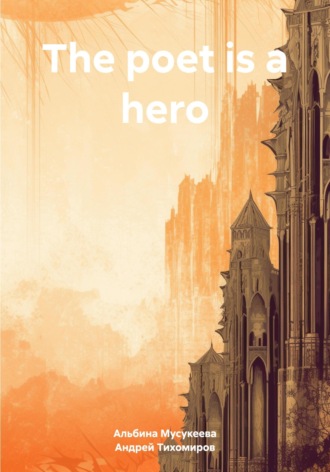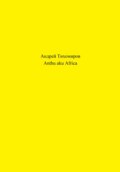
Андрей Тихомиров
The poet is a hero
At the same time, in the newspaper of the political department of the Turkestan army "Kyzyl Yuldus", he publishes his first poem, in which he calls on the defenders of Orenburg to feats in defense of the working people. In February 1920, he joined the Komsomol. He lived and worked in Orenburg for several years. After graduating from the art school, he served in special forces units, fought banditry. After graduating from the tatrabfak, Jalil worked as an instructor in the Orsk district Committee of the Komsomol, then in the Orenburg Provincial Committee of the Komsomol. The first poetry collection "Let's go" was published in 1925 in Kazan.
The works of M. M. Jalil of the 1920s include the glorification of the Heroes of the Revolution and the Civil war (the poem "The Roads Traversed", 1924-1929), romantic images of ordinary builders of socialism (collection "Order-bearing Millions", 1934; Collection "Postmen", 1938, published in 1940). At the end of 1927 He was elected a member of the bureau of the Tatar-Bashkir section of the Central Committee of the All-Union Lenin Komsomol Committee (KOMSOMOL). In 1931, he moved to Moscow, where he graduated from the literary Faculty of Moscow State University. Until 1932, he was the editor-in-chief of the Tatar children's magazine, headed the department of literature and art in the central Tatar newspaper "Communist".
In 1935, the first translations of his poems into Russian were published. In the 1930s, Jalil also translated into Tatar the works of poets of the peoples of the USSR Shota Rustaveli, Taras Shevchenko, Pushkin, Nekrasov, Mayakovsky and Lebedev-Kumach. As a playwright of the Tatar State Opera, he wrote four librettos for Tatar operas. In 1939 and 1940, he served as chairman of the Union of Writers of the Tatar ASSR.
The outbreak of the Great Patriotic War detained him in Kazan, where he headed the writers' organization of Tatarstan. Since July 1941, he has been at the front as a political instructor, an employee of the editorial office of the newspaper "Courage" of the 2nd shock Army in the Volkhov direction. In one of the battles, Musa Jalil was seriously wounded and captured. He ended up in a Nazi concentration camp. Soon, for participating in the preparation of the uprising of prisoners of war, he was imprisoned in the Moabite prison, then in the prisons of Spandau, Plettsensee. In prison, he continued to write poetry imbued with ardent love for the Motherland, his colleagues, and fellow citizens. In German captivity, he actively participated in the activities of an underground group of Tatar prisoners of war, was its ideological inspirer. On behalf of this group, he worked in the Tatarische Mittelstelle organization (Tatar mediation, Berlin), created by the Germans to conduct propaganda work among Tatar prisoners of war and use them in the war against the USSR; conducted cultural and educational work among prisoners of war forcibly enrolled in the legion, and destructive work against the Nazis.
On August 10, 1943, he and his comrades were arrested by the Gestapo and sent to the Moabite prison in Berlin. He was in a cell with Belgian patriot and resistance fighter Andre Timmermans and Polish prisoners. In prison, Jalil learns German to communicate with his prisoners. In prison, he wrote down poems written in the same place in homemade notebooks. He and his group of 12 people were sentenced to death on February 12, 1944 and executed by guillotine in Berlin's Plettsensee prison on August 25. His body has not been found.







